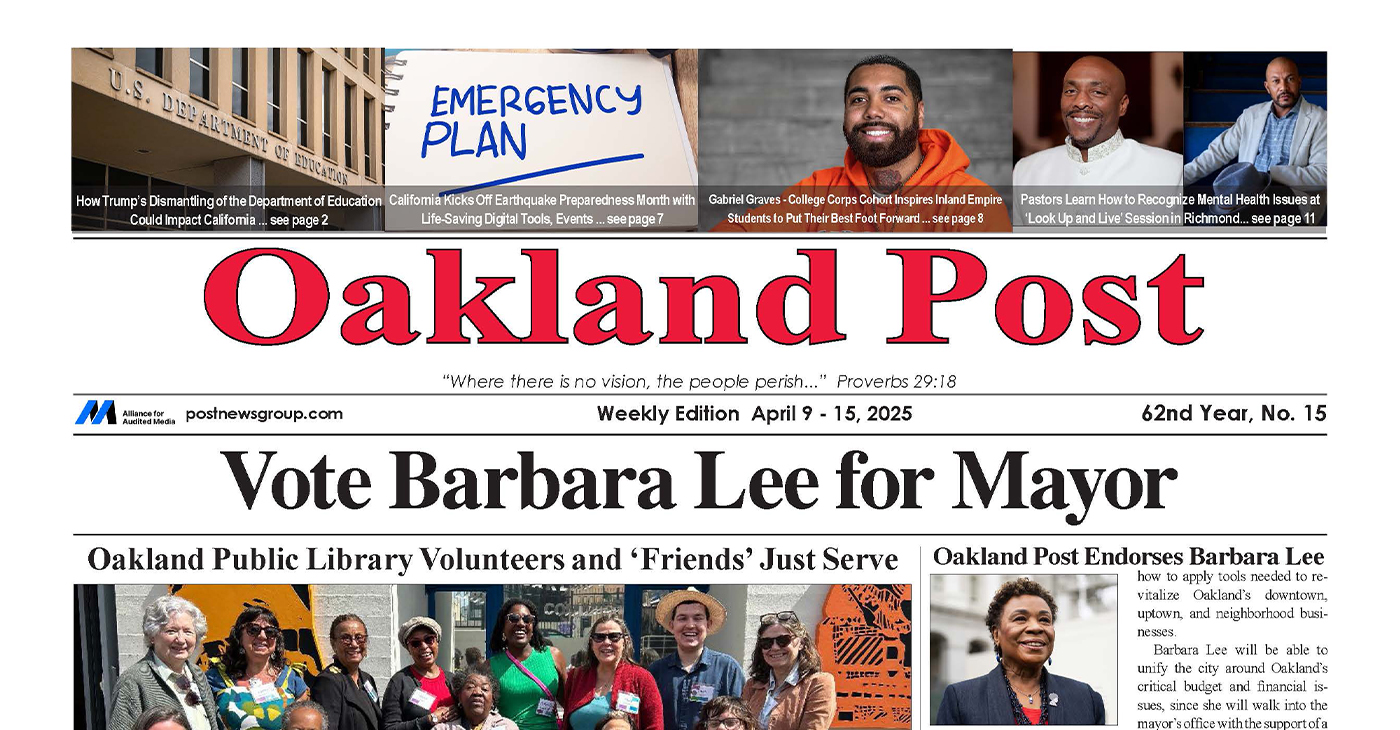Entertainment
Marsha Ambrosius’ Black hair magic
MINNESOTA SPOKESMAN-RECORDER — Marsha Ambrosius has been serving vocal magic and hair goals for nearly two decades. She first hit the scene as one-half of the R&B/poetry duo Floetry in 2003, reigning as a natural hair icon before it was even a thing.
Marsha Ambrosius has been serving vocal magic and hair goals for nearly two decades. She first hit the scene as one-half of the R&B/poetry duo Floetry in 2003, reigning as a natural hair icon before it was even a thing.
Now, the singer/songwriter is repping a brand new flow. In late 2018, she dropped Nyla, her first studio album in four years, rocked an amazing tour with Maxwell that included a fall stop in Minneapolis and headlined her own tour this spring.
As far as her album, when you press play, you know it’s Ambrosius.” I feel like not a lot of artists have that identity,” she shares. “I made it a point to always create and make you feel like [that]. This entire album has a signature Marsha ‘thing’ and that’s lovely.”
The same holds true for the songstress’ hair. Whether relaxing, big chopping or bleaching to get a hair fix, the naturalista has always celebrated the kinks, curls, and magic of her hair. We caught up with Ambrosius for a quick chat about her journey and love for hair.
MSR: Throughout your career, you’ve been known as much for your hair as your sound — what’s that like?
Marsha Ambrosius: Oh, that’s a whole other animal! You could google Marsha Ambrosius hair’ and you will see a million and five changes [laughs]. I’ve never been attached to hair where I needed that length or I needed that style. I’ve been like, “I’m bored, let’s do this.” I’ve had everything from an entire rainbow to just blonde to it falling out because I stripped it down too much and then chopped it all off again and started over. But I think what remained consistent was a giant fro and my natural curls.
MSR: With all these different moments, when did you fall in love with your hair?
MA: From the beginning! This little girl from Liverpool (England) with light skin, green eyes, had the most 4C textured, thick, Black afro you’ve ever seen — and I took pride in that.
As a kid, when I realized that if I put my hair in an updo, if I took it out the ponytail holder, it would stay like that — I thought that was amazing! I told this White girl to her face, “Your hair can’t do this… I am magic!” To anyone else, that’s jokes, but for me that was pride.
MSR: What’s one thing you wish you knew earlier?
MA: I love my hair journey. I love being able to do anything, but I wish someone would have told me sooner about protective styles and not having this stigma on Black women having to wear weaves or sew-ins or lace fronts or whatever it is. Now, I’m like, “Oh your hair is purple. I love this color! I lost my own hair because I stripped my hair down to the bone blonde so I could dye it purple and it all fell out.”
[I thought] people used to wear these things because you didn’t have any hair. I didn’t realize it was because all these women didn’t have the time and you can just get up and go and put one fly wig on! I hate myself right now for even thinking of it that way because what we do to each other is we judge.
MSR: With so many looks must come a ton of products/ how do you go about choosing what to try?
MA: For every Black woman or man anywhere, we’ll try a product when someone says try whatever. You’re going to try the product cause something is going to work for somebody. Not only that, we’ll use five of them at the same time and claim that that’s the magic and that’s okay, too! It can never be one thing, [more like]well actually I use this and this at the same time, but this at night.
MSR: Why is it so important for Black women to celebrate their hair and know that it’s magic.
MA: Because I know what it did for me and ultimately as small as that thing will be for anybody else, how it enabled my confidence in life, period. It was as simple as my hair being my crown.
This article originally appeared in the Minnesota Spokesman-Recorder.
Activism
Oakland Post: Week of April 9 – 15, 2025
The printed Weekly Edition of the Oakland Post: Week of April 9 – 15, 2025

To enlarge your view of this issue, use the slider, magnifying glass icon or full page icon in the lower right corner of the browser window.
Activism
Oakland Post: Week of April 2 – 8, 2025
The printed Weekly Edition of the Oakland Post: Week of April 2 – 8, 2025

To enlarge your view of this issue, use the slider, magnifying glass icon or full page icon in the lower right corner of the browser window.
Activism
Oakland Post: Week of March 28 – April 1, 2025
The printed Weekly Edition of the Oakland Post: Week of March 28 – April 1, 2025

To enlarge your view of this issue, use the slider, magnifying glass icon or full page icon in the lower right corner of the browser window.
-

 Activism3 weeks ago
Activism3 weeks agoWe Fought on Opposite Sides of the Sheng Thao Recall. Here’s Why We’re Uniting Behind Barbara Lee for Oakland Mayor
-

 Activism3 weeks ago
Activism3 weeks agoFaith Leaders Back Barbara Lee for Mayor, Criticize Candidate Loren Taylor for Dishonest Campaigning
-

 #NNPA BlackPress4 weeks ago
#NNPA BlackPress4 weeks agoRev. Dr. Jamal Bryant’s Black Church Target Boycott Mobilizes 150,000
-

 Activism3 weeks ago
Activism3 weeks agoOakland’s Most Vulnerable Neighborhoods Are Struggling to Eat and Stay Healthy
-

 #NNPA BlackPress4 weeks ago
#NNPA BlackPress4 weeks agoRecently Approved Budget Plan Favors Wealthy, Slashes Aid to Low-Income Americans
-

 Activism3 weeks ago
Activism3 weeks agoGroup Takes First Steps to Recall District Attorney Diana Becton
-

 Activism2 weeks ago
Activism2 weeks agoOakland Post Endorses Barbara Lee
-

 Activism4 weeks ago
Activism4 weeks agoOakland Post: Week of March 19 – 25, 2025





















































